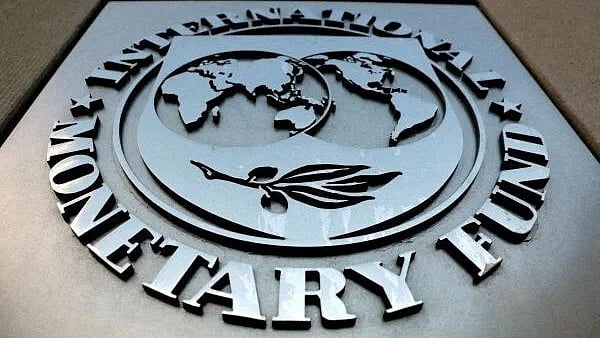
IMF's logo. Image for representational purpose.
Credit: Reuters File Photo
Karachi: The International Monetary Fund predicts Pakistan could lift its GDP between 5 per cent and 6.5 per cent over five years if it tackles corruption and deep-rooted governance failures.
A so-called diagnostic report calls for reforms to taxation, procurement and oversight of Pakistan's revenue authority.
The IMF-World Bank report, which was uploaded by Pakistan's finance ministry, offers the most detailed assessment in years of how fragmented regulation, opaque budgeting and political capture are curbing investment and weakening revenue.
Pakistan, which did not include any comment on the report on the finance ministry website, is targeting 4.2 per cent growth this year under its $7 billion IMF programme, under which the November report was published as a benchmark intended to guide reforms.
The IMF did not respond to a request for comment.
IMF SAYS TAX SYSTEM IS COMPLEX AND DISTORTING
Pakistan says it is digitising tax administration, cutting exemptions and restructuring state-owned firms.
The diagnostic says Pakistan's tax system is complex and distorting, with excessive exemptions and statutory orders.
It flags weak internal controls at Pakistan's tax body, the Federal Board of Revenue, broad autonomy for field offices and poor oversight of its IT arm.
The IMF urges simplifying tax policy, restructuring the FBR and strengthening audits. It also criticises Pakistan's reliance on supplementary grants that bypass parliament.
WEAK OVERSIGHT, POLITICAL INTERFERENCE AND OPAQUE PROCUREMENT
The review comes at a time of politically sensitive reforms and follows the 27th constitutional amendment, which created a new chief of defence forces and narrowed judicial oversight.
State-owned enterprises, holding assets equal to nearly half of nominal GDP, are flagged by the IMF as governance risks due to weak oversight, political interference and opaque procurement.
Despite improvements since its 2022 exit from the FATF "grey list", the IMF says Pakistan still struggles to secure corruption-linked money-laundering convictions.
Judicial delays, a large case backlog and inconsistent rulings further weaken contract enforcement, the IMF added.
The IMF calls for greater transparency on Pakistan's military-backed Special Investment Facilitation Council (SIFC), which was created in 2023 as a "single window" for investment.